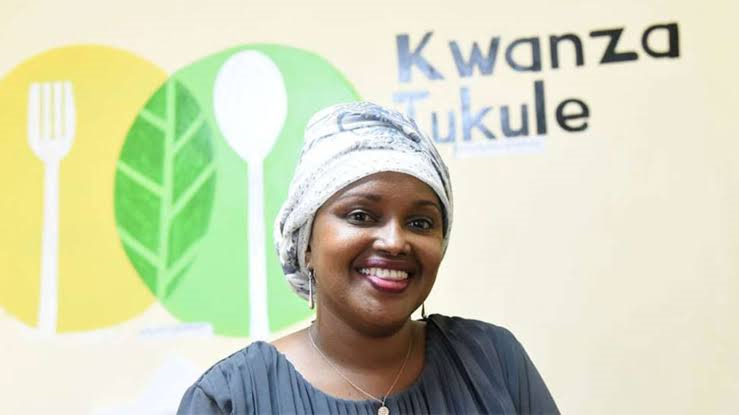Khadija Mohamed Churchill uses technology and logistics to deliver affordable staples daily to Kenya’s street food vendors.
Street food is essential for survival in Nairobi’s informal settlements, with studies showing that up to 40% of households rely on vendors for daily meals, and about a third of urban Kenyans’ nutritional intake comes from it. For millions living in cramped housing without kitchens or unable to afford to cook, a roadside stall often provides their only hot meal.
However, the predominantly female vendors (estimated at 65-80%) face significant challenges. Sourcing food staples is time-consuming, prices are unpredictable, and middlemen dominate the supply chain, leading to slim margins and limited growth opportunities.
Khadija Mohamed Churchill, who grew up in a low-income neighbourhood in Kenya watching her parents run a small shop, recognised this broken system. After 11 years in the UK working in banking and tech consulting and earning an MBA, she returned home in 2018. She was immediately struck by the scale of food insecurity in Nairobi’s settlements.
This realisation became the foundation for Kwanza Tukule Foods Limited, a Nairobi-based food distribution company she founded in 2018, whose Swahili name means “First, let’s eat.” The company aims to provide affordable, high-quality staples to the vendors who feed millions.
Kwanza Tukule – a vision bigger than business
Kwanza Tukule operates as a tech-driven B2B enterprise, tackling the primary challenges vendors face: affordability and availability of staple foods. The company achieves this by directly sourcing bulk quantities of items like maize flour, beans, and cooking oil from manufacturers, securing lower prices. These goods are then distributed daily in smaller amounts to vendors through a meticulously planned last-mile delivery system.
Vendors benefit significantly from Kwanza Tukule’s model, experiencing an average profit increase of 10-20% due to reduced sourcing costs and more time to focus on their businesses. Consistent deliveries also enhance their credibility with customers who depend on their stalls for daily meals.
Currently, Kwanza Tukule serves approximately 6,000 active vendors across Nairobi, Kisii, and Eldoret, with a substantial growth potential to reach 50,000 vendors in Nairobi alone. The company, which employs around 90 people, is steadily expanding and has attracted investment from impact investors such as DOB Equity, Elea Foundation, A to Z Impact, Mercy Corps Ventures, and Global Partnerships. This funding supports expansion into new cities and further development of its technology and operations.
Beyond growth, Kwanza Tukule prioritises sustainability and responsibility. The company maintains high hygiene standards in food preparation and incorporates renewable energy sources like biogas into its operations. Even during disruptions, such as the COVID-19 pandemic, the company demonstrated resilience by ensuring continuous supply to vendors and households, proving that innovation in Africa’s food system can be both sustainable and transformative.
Its supply chain, including sales, logistics, route planning, finance, and accounting, is fully digitised and automated, leading to efficiency and consistency. Vendors place orders via a mobile app and make cashless payments through platforms like M-Pesa.
Have you registered for the Africa Female CEO Conference (AFCC)? Join over 200+ influential and emerging African women leaders at the inaugural AFCC on September 18th at Radisson Blu, Ikeja, Lagos, to chart the course for Africa’s future. Hit this link to reserve your slot: https://tix.africa/africa-female-ceo-conference-afcc



